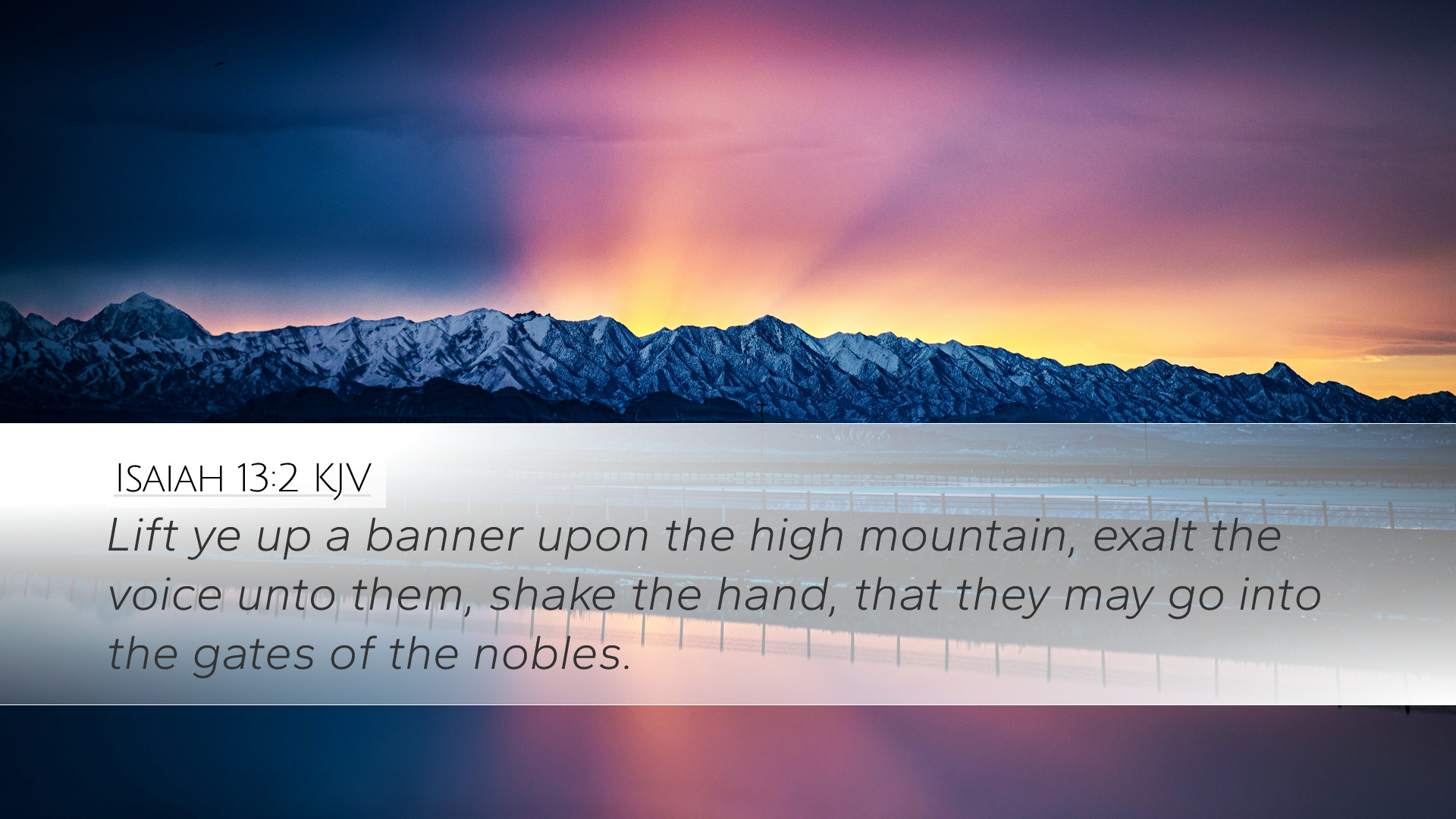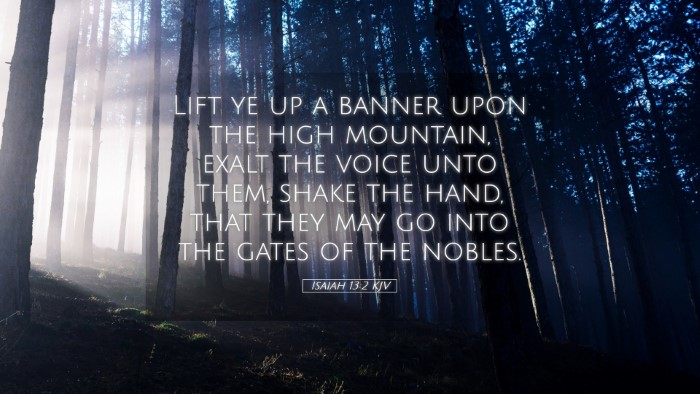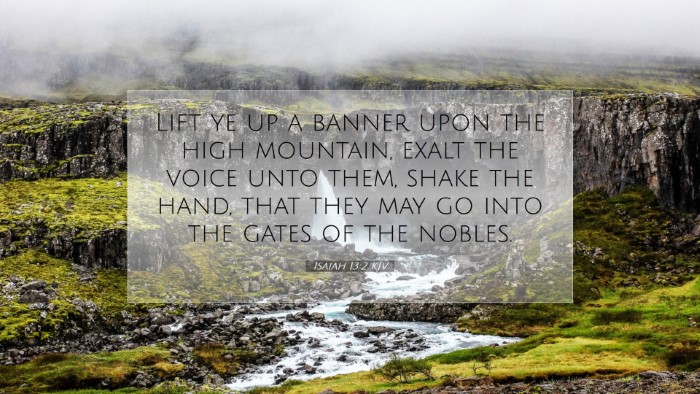Commentary on Isaiah 13:2
Verse Text: "Lift ye up a banner upon the high mountain, exalt the voice unto them, shake the hand, that they may go into the gates of the nobles."
Introduction
This verse from the book of Isaiah serves as a powerful call to arms, employing metaphors of banners, voices, and gestures to convey a message of urgency and divine command. The context speaks to impending judgment, specifically concerning Babylon, and is rich with themes of proclamation, authority, and divine sovereignty.
Contextual Analysis
Isaiah 13:2 is part of a larger prophecy against Babylon (Isaiah 13:1-22), wherein Isaiah delineates the judgment that God will render upon this great empire. The use of "banner" indicates a rallying point, a symbol of authority and divine judgment. The mountains symbolize not only geographical elevation but also spiritual and political prominence.
Insights from Public Domain Commentaries
Matthew Henry's Commentary
Matthew Henry emphasizes the significance of the banner that must be lifted up: "A banner is a sign of the presence of the Lord; it also signifies victory and the place of assembly for the people." He observes that the banner serves as a divine signal calling the nations to witness God’s judgment upon Babylon. Moreover, he suggests that the "high mountain" represents a place of prominence and visibility, underscoring the clarity with which God’s judgment will be displayed to all.
Albert Barnes' Notes
Albert Barnes interprets the "high mountain" as indicative of the exalted nature of the announcement. He states: "The voice that is to be raised is not only for the immediate locality but intended to reverberate to all nations and classes." The action of shaking the hand signifies authority and command, urging those who hear the call to respond. Barnes highlights that this is a divine mandate to prepare the nations for the coming of the Lord's wrath upon Babylon, serving both as a warning and a call to repentance.
Adam Clarke's Commentary
Adam Clarke delves into the imagery of the "gates of the nobles," interpreting it as a direct reference to the strongholds of power within Babylon. Clarke notes: "The gates reflect the entry points of influence where decisions are made." He emphasizes that the shaking of the hand signifies a power struggle, as the faithful are called to confront and challenge the authority of the corrupt ruling class. Clarke connects the theme of opposition against tyranny with the empowerment of God’s people to rise up against injustice.
Theological Implications
This verse provides profound insights into the nature of God’s authority over nations. The act of lifting a banner symbolizes not just the call for military action but a proclamation of spiritual truth. In the context of Isaiah's prophecy, it serves as a reminder that God is sovereign over the affairs of men. The verse encourages believers to recognize and respond to God’s call in the face of oppressive powers and to proclaim His righteousness.
Practical Applications
- Proclamation of Justice: Pastors and church leaders are called to proclaim justice in their communities, echoing God's mandate to stand against oppression.
- Awareness of Sovereignty: Believers should cultivate an awareness of God’s sovereignty over worldly affairs, encouraging a posture of prayer and vigilance.
- Empowerment of Action: This text serves as an impetus for action among the faithful, urging them to lift their voices against injustice in their societies.
Conclusion
Isaiah 13:2 encapsulates a powerful summons that transcends its historical context. It is a clarion call for all believers to awaken to their responsibilities as ambassadors of God's truth. As we reflect on this text, may it encourage a renewed commitment to spiritual vigilance and social justice in our communities, guided by the righteousness of God and the assurance of His sovereign will.


